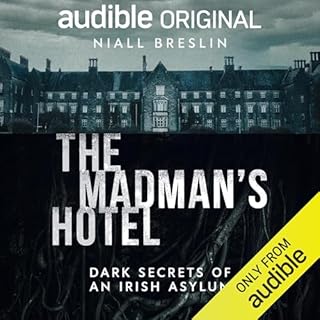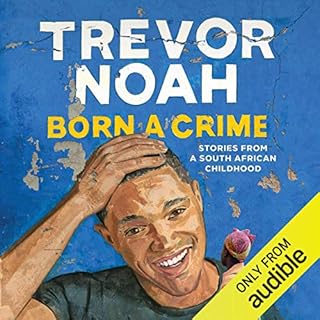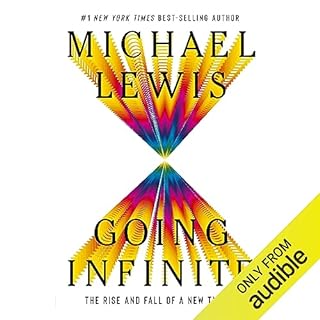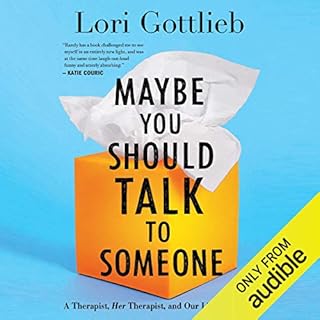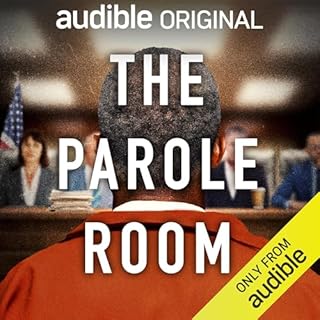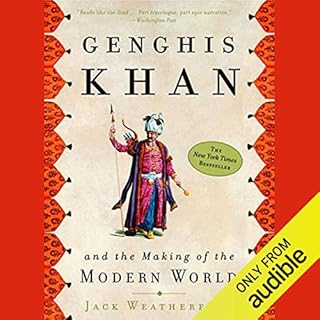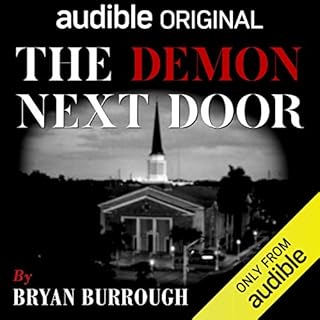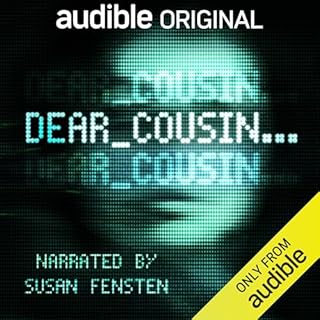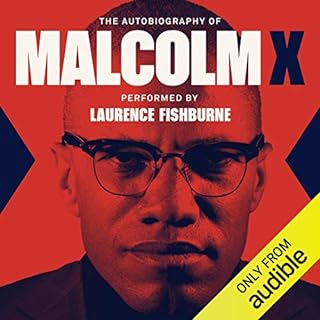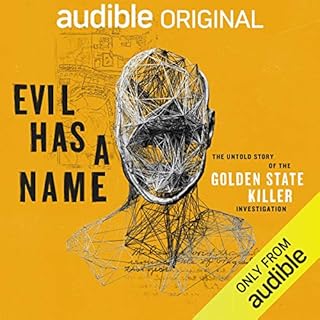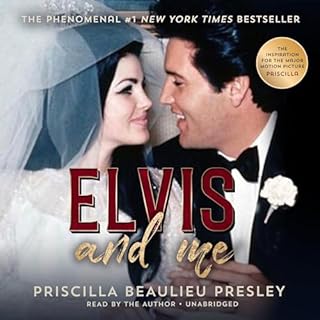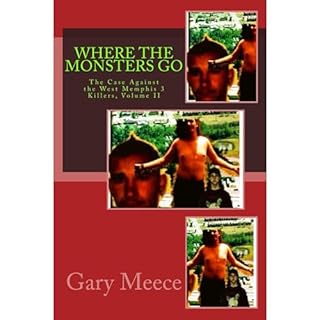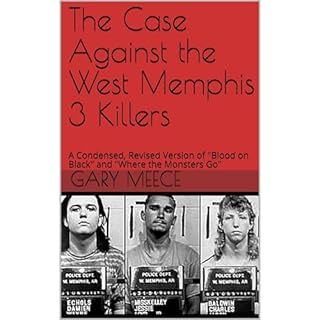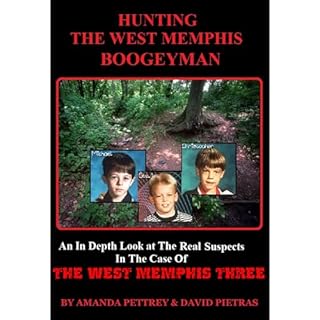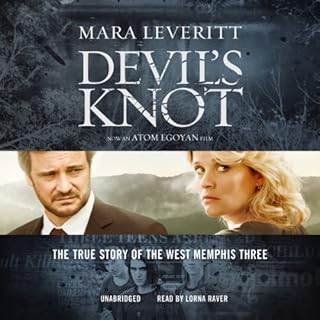Pruébalo escuchando una muestra.
-
Blood on Black
- The Case Against the West Memphis 3, Volume I
- Narrado por: Virtual Voice
- Duración: 10 h y 38 m
No se pudo agregar al carrito
Add to Cart failed.
Error al Agregar a Lista de Deseos.
Error al eliminar de la lista de deseos.
Error al añadir a tu biblioteca
Error al seguir el podcast
Error al dejar de seguir el podcast
Compra ahora por $14.99
No default payment method selected.
We are sorry. We are not allowed to sell this product with the selected payment method

Este título utiliza narración de virtual voice
Resumen del Editor
Relacionado con este tema
-
My Mom's Murder
- De: AYR Media
- Narrado por: Lauren Malloy
- Duración: 6 h y 35 m
- Grabación Original
-
General4.5 out of 5 stars 541
-
Narración:4.5 out of 5 stars 530
-
Historia4.5 out of 5 stars 530
When a mysterious stranger unveils a long-hidden truth, Lauren Malloy’s life is thrown into chaos. For years, Lauren believed her mother, Lori, died of natural causes, but the shocking reality is that her loving mother was brutally murdered when Lauren was just an infant. Now, 30 years later, Lauren is on a relentless quest for justice. Over the past four years, she’s embarked on an emotional journey filled with unexpected twists, recording hundreds of hours of interviews with law enforcement, family, friends, and even potential suspects.
-
5 out of 5 stars
-
Gripping
- De Emily Palmer en 10-12-24
De: AYR Media
-
The Madman's Hotel
- De: Niall Breslin
- Narrado por: Niall Breslin
- Duración: 4 h y 4 m
- Grabación Original
-
General4.5 out of 5 stars 340
-
Narración:5 out of 5 stars 334
-
Historia4.5 out of 5 stars 334
In the heart of the rolling green hills of Ireland a huge abandoned psychiatric asylum looms large and holds its secrets close, until one family fights to find the truth about their long lost great grandmother. Presented by Irish celebrity and mental health advocate Niall Breslin - this is the untold story of the quest to find patient Julia Leonard, alongside many others, who came to die in St Loman’s Hospital near Dublin. Why was Julia in St Loman’s? And what happened to her and other patients who found themselves within its walls?
-
5 out of 5 stars
-
Heart felt Remembrance
- De RosaInGlousta en 11-05-24
De: Niall Breslin
-
Born a Crime
- Stories from a South African Childhood
- De: Trevor Noah
- Narrado por: Trevor Noah
- Duración: 8 h y 44 m
- Versión completa
-
General5 out of 5 stars 215,125
-
Narración:5 out of 5 stars 194,623
-
Historia5 out of 5 stars 193,654
In this award-winning Audible Studios production, Trevor Noah tells his wild coming-of-age tale during the twilight of apartheid in South Africa. It’s a story that begins with his mother throwing him from a moving van to save him from a potentially fatal dispute with gangsters, then follows the budding comedian’s path to self-discovery through episodes both poignant and comical.
-
5 out of 5 stars
-
Great book and perfect narration
- De MarilynArms en 12-15-16
De: Trevor Noah
-
Going Infinite
- The Rise and Fall of a New Tycoon
- De: Michael Lewis
- Narrado por: Michael Lewis
- Duración: 9 h y 35 m
- Versión completa
-
General4.5 out of 5 stars 2,049
-
Narración:4.5 out of 5 stars 1,841
-
Historia4.5 out of 5 stars 1,839
When Michael Lewis first met him, Sam Bankman-Fried was the world’s youngest billionaire and crypto’s Gatsby. CEOs, celebrities, and leaders of small countries all vied for his time and cash after he catapulted, practically overnight, onto the Forbes billionaire list. Who was this rumpled guy in cargo shorts and limp white socks, whose eyes twitched across Zoom meetings as he played video games on the side?
-
1 out of 5 stars
-
really expected more rigor from Michael Lewis
- De Wowhello en 10-04-23
De: Michael Lewis
-
The Wonder of Stevie
- De: Wesley Morris
- Narrado por: Wesley Morris, Michelle Obama, Barack Obama, y otros
- Duración: 6 h y 10 m
- Grabación Original
-
General5 out of 5 stars 610
-
Narración:5 out of 5 stars 570
-
Historia5 out of 5 stars 570
The year 1972 saw the beginning of a five-year span in which Stevie Wonder released five groundbreaking, critically acclaimed albums, garnering him more than half a dozen Grammys and more than 10 million albums sold, securing his place as one of the most important American musicians and songwriters in history. For the first time, uncover the untold story of an extraordinary artistic journey that shaped the greatest creative era in popular music history.
-
2 out of 5 stars
-
Good but not great
- De Anonymous User en 09-14-24
De: Wesley Morris
-
Maybe You Should Talk to Someone
- A Therapist, HER Therapist, and Our Lives Revealed
- De: Lori Gottlieb
- Narrado por: Brittany Pressley
- Duración: 14 h y 21 m
- Versión completa
-
General4.5 out of 5 stars 43,413
-
Narración:5 out of 5 stars 38,237
-
Historia4.5 out of 5 stars 38,100
One day, Lori Gottlieb is a therapist who helps patients in her Los Angeles practice. The next, a crisis causes her world to come crashing down. Enter Wendell, the quirky but seasoned therapist in whose office she suddenly lands. With his balding head, cardigan, and khakis, he seems to have come straight from Therapist Central Casting. Yet he will turn out to be anything but.
-
2 out of 5 stars
-
It was like a hallmark movie being waterboarded into my ears for 15 hours
- De Amazon Customer en 10-01-19
De: Lori Gottlieb
-
My Mom's Murder
- De: AYR Media
- Narrado por: Lauren Malloy
- Duración: 6 h y 35 m
- Grabación Original
-
General4.5 out of 5 stars 541
-
Narración:4.5 out of 5 stars 530
-
Historia4.5 out of 5 stars 530
When a mysterious stranger unveils a long-hidden truth, Lauren Malloy’s life is thrown into chaos. For years, Lauren believed her mother, Lori, died of natural causes, but the shocking reality is that her loving mother was brutally murdered when Lauren was just an infant. Now, 30 years later, Lauren is on a relentless quest for justice. Over the past four years, she’s embarked on an emotional journey filled with unexpected twists, recording hundreds of hours of interviews with law enforcement, family, friends, and even potential suspects.
-
5 out of 5 stars
-
Gripping
- De Emily Palmer en 10-12-24
De: AYR Media
-
The Madman's Hotel
- De: Niall Breslin
- Narrado por: Niall Breslin
- Duración: 4 h y 4 m
- Grabación Original
-
General4.5 out of 5 stars 340
-
Narración:5 out of 5 stars 334
-
Historia4.5 out of 5 stars 334
In the heart of the rolling green hills of Ireland a huge abandoned psychiatric asylum looms large and holds its secrets close, until one family fights to find the truth about their long lost great grandmother. Presented by Irish celebrity and mental health advocate Niall Breslin - this is the untold story of the quest to find patient Julia Leonard, alongside many others, who came to die in St Loman’s Hospital near Dublin. Why was Julia in St Loman’s? And what happened to her and other patients who found themselves within its walls?
-
5 out of 5 stars
-
Heart felt Remembrance
- De RosaInGlousta en 11-05-24
De: Niall Breslin
-
Born a Crime
- Stories from a South African Childhood
- De: Trevor Noah
- Narrado por: Trevor Noah
- Duración: 8 h y 44 m
- Versión completa
-
General5 out of 5 stars 215,125
-
Narración:5 out of 5 stars 194,623
-
Historia5 out of 5 stars 193,654
In this award-winning Audible Studios production, Trevor Noah tells his wild coming-of-age tale during the twilight of apartheid in South Africa. It’s a story that begins with his mother throwing him from a moving van to save him from a potentially fatal dispute with gangsters, then follows the budding comedian’s path to self-discovery through episodes both poignant and comical.
-
5 out of 5 stars
-
Great book and perfect narration
- De MarilynArms en 12-15-16
De: Trevor Noah
-
Going Infinite
- The Rise and Fall of a New Tycoon
- De: Michael Lewis
- Narrado por: Michael Lewis
- Duración: 9 h y 35 m
- Versión completa
-
General4.5 out of 5 stars 2,049
-
Narración:4.5 out of 5 stars 1,841
-
Historia4.5 out of 5 stars 1,839
When Michael Lewis first met him, Sam Bankman-Fried was the world’s youngest billionaire and crypto’s Gatsby. CEOs, celebrities, and leaders of small countries all vied for his time and cash after he catapulted, practically overnight, onto the Forbes billionaire list. Who was this rumpled guy in cargo shorts and limp white socks, whose eyes twitched across Zoom meetings as he played video games on the side?
-
1 out of 5 stars
-
really expected more rigor from Michael Lewis
- De Wowhello en 10-04-23
De: Michael Lewis
-
The Wonder of Stevie
- De: Wesley Morris
- Narrado por: Wesley Morris, Michelle Obama, Barack Obama, y otros
- Duración: 6 h y 10 m
- Grabación Original
-
General5 out of 5 stars 610
-
Narración:5 out of 5 stars 570
-
Historia5 out of 5 stars 570
The year 1972 saw the beginning of a five-year span in which Stevie Wonder released five groundbreaking, critically acclaimed albums, garnering him more than half a dozen Grammys and more than 10 million albums sold, securing his place as one of the most important American musicians and songwriters in history. For the first time, uncover the untold story of an extraordinary artistic journey that shaped the greatest creative era in popular music history.
-
2 out of 5 stars
-
Good but not great
- De Anonymous User en 09-14-24
De: Wesley Morris
-
Maybe You Should Talk to Someone
- A Therapist, HER Therapist, and Our Lives Revealed
- De: Lori Gottlieb
- Narrado por: Brittany Pressley
- Duración: 14 h y 21 m
- Versión completa
-
General4.5 out of 5 stars 43,413
-
Narración:5 out of 5 stars 38,237
-
Historia4.5 out of 5 stars 38,100
One day, Lori Gottlieb is a therapist who helps patients in her Los Angeles practice. The next, a crisis causes her world to come crashing down. Enter Wendell, the quirky but seasoned therapist in whose office she suddenly lands. With his balding head, cardigan, and khakis, he seems to have come straight from Therapist Central Casting. Yet he will turn out to be anything but.
-
2 out of 5 stars
-
It was like a hallmark movie being waterboarded into my ears for 15 hours
- De Amazon Customer en 10-01-19
De: Lori Gottlieb
-
The Parole Room
- De: Ben Austen
- Narrado por: Ben Austen
- Duración: 4 h y 25 m
- Grabación Original
-
General4.5 out of 5 stars 207
-
Narración:4.5 out of 5 stars 204
-
Historia4.5 out of 5 stars 204
Will Johnnie Veal—convicted of the murder of two police officers in 1970—be granted parole after 50 years in prison? How can he convince the parole board he’s reformed when he insists he’s innocent? What is prison time even supposed to accomplish? These are the questions that propel The Parole Room forward as it builds toward Johnnie’s 20th parole hearing—after 19 rejections.
-
5 out of 5 stars
-
Enlightening story & a must read
- De Patsy en 10-07-24
De: Ben Austen
-
Genghis Khan and the Making of the Modern World
- De: Jack Weatherford
- Narrado por: Jonathan Davis, Jack Weatherford
- Duración: 14 h y 20 m
- Versión completa
-
General4.5 out of 5 stars 19,922
-
Narración:4.5 out of 5 stars 16,472
-
Historia4.5 out of 5 stars 16,468
The Mongol army led by Genghis Khan subjugated more lands and people in 25 years than the Romans did in 400. In nearly every country the Mongols conquered, they brought an unprecedented rise in cultural communication, expanded trade, and a blossoming of civilization.
-
5 out of 5 stars
-
Golden Horde/Platinum Listen
- De Cynthia en 12-11-13
De: Jack Weatherford
-
The Demon Next Door
- De: Bryan Burrough
- Narrado por: Steve White
- Duración: 2 h y 45 m
- Versión completa
-
General4 out of 5 stars 31,036
-
Narración:4 out of 5 stars 27,814
-
Historia4 out of 5 stars 27,706
Best-selling author Bryan Burrough recently made a shocking discovery: The small town of Temple, Texas, where he had grown up, had harbored a dark secret. One of his high school classmates, Danny Corwin, was a vicious serial killer. In this chilling tale, Burrough raises important questions of whether serial killers can be recognized before they kill or rehabilitated after they do. It is also a story of Texas politics and power that led the good citizens of the town of Temple to enable a demon who was their worst nightmare.
-
4 out of 5 stars
-
Odd narration choice
- De Amanda Fredericks en 03-08-19
De: Bryan Burrough
-
Heroes Behind Headlines
- Only the Brave
- De: Ralph Pezzullo
- Narrado por: Ralph Pezzullo
- Duración: 6 h y 33 m
- Grabación Original
-
General4.5 out of 5 stars 19
-
Narración:5 out of 5 stars 17
-
Historia5 out of 5 stars 17
How did DEA agents orchestrate the capture of one of the world’s most wanted weapons dealers? How does an all-female, unarmed group of rangers stop poachers from killing South Africa’s most majestic wild animals? And how did a scrappy crew of soldiers help desperate Afghans escape Kabul during the Taliban’s rapid takeover? Welcome to Heroes Behind Headlines: Only the Brave, where host Ralph Pezzullo takes you on deep dives into extraordinary true stories, told to you by the experts and the brave men and women who lived them.
-
5 out of 5 stars
-
Wow
- De Jmrinidaho en 11-17-24
De: Ralph Pezzullo
-
Dear Cousin: The Stalking of Susan Fensten
- De: Ventureland
- Narrado por: Susan Fensten
- Duración: 4 h y 24 m
- Grabación Original
-
General4.5 out of 5 stars 1,337
-
Narración:4.5 out of 5 stars 1,313
-
Historia4.5 out of 5 stars 1,313
Dear Cousin: The Stalking of Susan Fensten is the gripping true story of one woman's quest for long lost family. After the deaths of her sister and estranged father, Susan searches for relatives on an early online genealogy forum. When she meets cousins from her grandfather's other family, they're everything she'd hoped for—until it all goes to hell.
-
5 out of 5 stars
-
Harrowing Case, Excellent Production
- De C Lopez en 07-12-24
De: Ventureland
-
The Autobiography of Malcolm X
- As Told to Alex Haley
- De: Malcolm X, Alex Haley
- Narrado por: Laurence Fishburne
- Duración: 16 h y 52 m
- Versión completa
-
General5 out of 5 stars 12,423
-
Narración:5 out of 5 stars 11,051
-
Historia5 out of 5 stars 10,991
Experience a bold take on this classic autobiography as it’s performed by Oscar-nominated Laurence Fishburne. In this searing classic autobiography, originally published in 1965, Malcolm X, the Muslim leader, firebrand, and Black empowerment activist, tells the extraordinary story of his life and the growth of the Human Rights movement. His fascinating perspective on the lies and limitations of the American dream and the inherent racism in a society that denies its non-White citizens the opportunity to dream, gives extraordinary insight into the most urgent issues of our own time.
-
4 out of 5 stars
-
it's Nearly perfect
- De Kerry en 09-16-20
De: Malcolm X, y otros
-
Evil Has a Name
- The Untold Story of the Golden State Killer Investigation
- De: Paul Holes, Jim Clemente, Peter McDonnell
- Narrado por: Paul Holes, Jim Clemente
- Duración: 6 h y 13 m
- Grabación Original
-
General5 out of 5 stars 21,369
-
Narración:5 out of 5 stars 19,210
-
Historia5 out of 5 stars 19,113
For his victims, for their families and for the investigators tasked with finding him, the senselessness and brutality of the Golden State Killer's acts were matched only by the powerlessness they felt at failing to uncover his identity. Then, on April 24, 2018, authorities arrested 72-year-old Joseph James DeAngelo at his home in Citrus Heights, Calif., based on DNA evidence linked to the crimes. Amazingly, it seemed, evil finally had a name. Please note: This work contains descriptions of violent crime and sexual assault and may not be suitable for all listeners.
-
5 out of 5 stars
-
Audible Raises The Bar On True Crime Genre
- De R. Squyres en 11-16-18
De: Paul Holes, y otros
-
Blues Brothers: The Arc of Gratitude
- De: Dan Aykroyd
- Narrado por: Dan Aykroyd
- Duración: 1 h y 56 m
- Grabación Original
-
General4.5 out of 5 stars 475
-
Narración:5 out of 5 stars 397
-
Historia5 out of 5 stars 397
Elwood Blues (aka Dan Aykroyd) is on another mission—to tell the full story of how two young actors went from blues lovers to Blues Brothers. In this fascinating audio documentary Aykroyd “gets the band back together”, taking listeners on a road trip through time—from late nights in the early days with John Belushi at Dan’s speakeasy in Toronto, to working with blues legends Aretha Franklin, James Brown, and Ray Charles on The Blues Brothers movie, through the founding of House of Blues, the Blues Brothers 2000 sequel, and beyond.
-
4 out of 5 stars
-
You had to be there
- De 🔥 Phx17 🔥 en 07-26-24
De: Dan Aykroyd
-
Problem Child
- De: Terrell Carter, Stacy Thunes
- Narrado por: Terrell Carter
- Duración: 7 h y 34 m
- Versión completa
-
General5 out of 5 stars 225
-
Narración:5 out of 5 stars 200
-
Historia5 out of 5 stars 200
Problem Child is the unbelievably true story of Terrell Carter, an American musician and actor who grew up in Buffalo, New York, in a dysfunctional family, each member crazier than the next. And the Problem Child is the only one in the story who may, or may not, actually have a problem. An emotional journey of trials and revelations, with a huge secret at its core, this story may force you to laugh - just to keep from crying.
-
4 out of 5 stars
-
Worth the wait . . .
- De JPALJ en 12-07-22
De: Terrell Carter, y otros
-
Elvis and Me
- De: Priscilla Beaulieu Presley
- Narrado por: Priscilla Beaulieu Presley
- Duración: 7 h y 30 m
- Versión completa
-
General4.5 out of 5 stars 3,208
-
Narración:4.5 out of 5 stars 2,897
-
Historia4.5 out of 5 stars 2,890
The inspiration for the major motion picture Priscilla directed by Sofia Coppola, this New York Times best seller reveals the intimate story of Elvis Presley and Priscilla Presley, told by the woman who lived it.
-
5 out of 5 stars
-
What a story!
- De Pen Name en 08-28-22
-
Episodes
- The True Story of Two Friends & One Diagnosis
- De: Mara Altman, Kat Alexander
- Narrado por: Mara Altman, Kat Alexander
- Duración: 7 h y 5 m
- Grabación Original
-
General5 out of 5 stars 16
-
Narración:5 out of 5 stars 15
-
Historia5 out of 5 stars 15
In Episodes, lifelong best friends Kat and Mara take listeners on an unfiltered journey through friendship, mental illness, and survival. Kat, a successful professional, is preparing for marriage and motherhood. On her fourth round of IVF, it happened—a frantic call to Mara. Mara comes over to find Kat, her friend of 25 years—the one who'd always been levelheaded, hilarious, and over-the-top thoughtful—trying to jump through a window.
-
5 out of 5 stars
-
Just listen!
- De AJ en 11-17-24
De: Mara Altman, y otros
-
How I Get It Done
- De: Shereen Marisol Meraji
- Narrado por: Shereen Marisol Meraji
- Duración: 9 h y 53 m
- Grabación Original
-
General4.5 out of 5 stars 31
-
Narración:4.5 out of 5 stars 29
-
Historia4.5 out of 5 stars 29
In a series of deeply moving and inspiring conversations, host Shereen Marisol Meraji connects with successful women from all walks of life to reveal how they manage their careers and every aspect of their lives. Based on the long-running column from The Cut and New York Magazine.
-
5 out of 5 stars
-
Relatable, helpful, and beautifully produced.
- De Anonymous User en 09-07-24
Las personas que vieron esto también vieron...
-
Where The Monsters Go
- The Case Against the West Memphis 3 Killers, Volume II
- De: Gary Meece
- Narrado por: Virtual Voice
- Duración: 9 h y 28 m
- Versión completa
-
General0 out of 5 stars 0
-
Narración:0 out of 5 stars 0
-
Historia0 out of 5 stars 0
There is the myth of the West Memphis 3 -- innocent teenagers railroaded by malicious police and prosecutors into murder convictions because of the way they dressed and the music they listened to, there being no evidence against them except the prejudices of Southern white Christians. And then there is the reality --- three criminally inclined young thugs involved in occultism who gleefully tortured three 8-year-old boys and then brought the justice system down upon them based on multiple factors, including a series of confessions, failed lie detector tests, failed alibis, eyewitness ...
De: Gary Meece
-
Abomination
- Devil Worship and Deception in the West Memphis Three Murders
- De: William Ramsey
- Narrado por: Virtual Voice
- Duración: 14 h y 24 m
- Versión completa
-
General1 out of 5 stars 1
-
Narración:1 out of 5 stars 1
-
Historia1 out of 5 stars 1
With shocking insights into one of the most talked about murder cases in American history, Abomination: Devil Worship and Deception in the West Memphis Three Murders reveals the truth about the death of three children in West Memphis, Arkansas in 1993. By analyzing original police transcripts and court documents, William Ramsey conclusively proves that witchcraft and the occult were involved in the heinous murders, and that a continuing wall of deception has prevented the public from realizing the awful truth about the West Memphis Three child killings.
-
1 out of 5 stars
-
Horrible repetition and very biased
- De KLR en 11-12-24
De: William Ramsey
-
The Case Against the West Memphis 3 Killers
- A Condensed, Revised Version of "Blood on Black" and "Where the Monsters Go"
- De: Gary Meece
- Narrado por: Virtual Voice
- Duración: 9 h y 58 m
- Versión completa
-
General3 out of 5 stars 3
-
Narración:4.5 out of 5 stars 3
-
Historia3.5 out of 5 stars 3
The beaten, bound and mutilated bodies of three 8-year-olds, Christopher Byers, Michael Moore and Stevie Branch, were pulled from a muddy ditch in a wooded area in West Memphis, Ark., on May 6, 1993. The boys had gone missing the day before. Weeks of investigation led to arrests of Damien Echols, 18, Jason Baldwin, 16, and Jessie Misskelley Jr. on June 3, 1993, after the 17-year-old Misskelley confessed that he and two friends murdered the boys. All three were convicted. The convictions held up on appeal. Eventually, thanks to Hollywood celebrities and misleading documentaries, the killers ...
-
2 out of 5 stars
-
Poorly written clear bias
- De Lisa J Koski en 07-09-24
De: Gary Meece
-
Hunting The West Memphis Boogeyman
- De: David Pietras, Amanda Pettrey
- Narrado por: Virtual Voice
- Duración: 6 h y 20 m
- Versión completa
-
General3 out of 5 stars 3
-
Narración:1 out of 5 stars 2
-
Historia3 out of 5 stars 2
Twenty one years after the brutal murders of three eight year old Cub Scouts in West Memphis, Arkansas, there seem to still be more questions than there are answers. We have gone all the way back to the beginning and looked through years worth of evidence. What we have found may truly shock you. Sifting between truth and lies, rumors and reality, and taking quite an emotional roller coaster ride, we have put together a book that strives to present nothing but the cold hard facts of what truly took place on the night of May 5, 1993 in Robin Hood Hills to Steven Branch, Michael Moore and ...
-
3 out of 5 stars
-
AI narrator NOT recommended!
- De Lisa Clark en 07-25-24
De: David Pietras, y otros
-
Devil’s Knot
- The True Story of the West Memphis Three
- De: Mara Leveritt
- Narrado por: Lorna Raver
- Duración: 15 h y 47 m
- Versión completa
-
General4.5 out of 5 stars 876
-
Narración:4.5 out of 5 stars 784
-
Historia4.5 out of 5 stars 785
“Free the West Memphis Three!” - maybe you’ve heard the phrase, but do you know why their story is so alarming? Do you know the facts? The guilty verdicts handed out to three Arkansas teens in a horrific capital murder case were popular in their home state - even upheld on appeal. But after two HBO documentaries called attention to the witch-hunt atmosphere at the trials, artists and other supporters raised concerns about the accompanying lack of evidence.
-
2 out of 5 stars
-
Surprisingly disappointing
- De La Becket en 12-05-12
De: Mara Leveritt
-
The Perfect Father
- The True Story of Chris Watts, His All-American Family, and a Shocking Murder
- De: John Glatt
- Narrado por: Shaun Grindell
- Duración: 7 h y 47 m
- Versión completa
-
General4.5 out of 5 stars 629
-
Narración:4.5 out of 5 stars 561
-
Historia4.5 out of 5 stars 562
In the early morning hours of August 13, 2018, Shanann Watts was dropped off at her Frederick, Colorado, home by a colleague after returning from a business trip. It was the last time anyone would see her alive. By the next day, Shanann and her two young daughters, Bella and Celeste, had been reported missing, and her husband, Chris Watts, was appearing on the local news, pleading for his family's safe return. But Chris Watts already knew that he would never see his family again. Less than 24 hours after his desperate plea, Watts made a shocking confession to police.
-
2 out of 5 stars
-
Disappointing
- De jill greeson en 07-23-20
De: John Glatt
-
Where The Monsters Go
- The Case Against the West Memphis 3 Killers, Volume II
- De: Gary Meece
- Narrado por: Virtual Voice
- Duración: 9 h y 28 m
- Versión completa
-
General0 out of 5 stars 0
-
Narración:0 out of 5 stars 0
-
Historia0 out of 5 stars 0
There is the myth of the West Memphis 3 -- innocent teenagers railroaded by malicious police and prosecutors into murder convictions because of the way they dressed and the music they listened to, there being no evidence against them except the prejudices of Southern white Christians. And then there is the reality --- three criminally inclined young thugs involved in occultism who gleefully tortured three 8-year-old boys and then brought the justice system down upon them based on multiple factors, including a series of confessions, failed lie detector tests, failed alibis, eyewitness ...
De: Gary Meece
-
Abomination
- Devil Worship and Deception in the West Memphis Three Murders
- De: William Ramsey
- Narrado por: Virtual Voice
- Duración: 14 h y 24 m
- Versión completa
-
General1 out of 5 stars 1
-
Narración:1 out of 5 stars 1
-
Historia1 out of 5 stars 1
With shocking insights into one of the most talked about murder cases in American history, Abomination: Devil Worship and Deception in the West Memphis Three Murders reveals the truth about the death of three children in West Memphis, Arkansas in 1993. By analyzing original police transcripts and court documents, William Ramsey conclusively proves that witchcraft and the occult were involved in the heinous murders, and that a continuing wall of deception has prevented the public from realizing the awful truth about the West Memphis Three child killings.
-
1 out of 5 stars
-
Horrible repetition and very biased
- De KLR en 11-12-24
De: William Ramsey
-
The Case Against the West Memphis 3 Killers
- A Condensed, Revised Version of "Blood on Black" and "Where the Monsters Go"
- De: Gary Meece
- Narrado por: Virtual Voice
- Duración: 9 h y 58 m
- Versión completa
-
General3 out of 5 stars 3
-
Narración:4.5 out of 5 stars 3
-
Historia3.5 out of 5 stars 3
The beaten, bound and mutilated bodies of three 8-year-olds, Christopher Byers, Michael Moore and Stevie Branch, were pulled from a muddy ditch in a wooded area in West Memphis, Ark., on May 6, 1993. The boys had gone missing the day before. Weeks of investigation led to arrests of Damien Echols, 18, Jason Baldwin, 16, and Jessie Misskelley Jr. on June 3, 1993, after the 17-year-old Misskelley confessed that he and two friends murdered the boys. All three were convicted. The convictions held up on appeal. Eventually, thanks to Hollywood celebrities and misleading documentaries, the killers ...
-
2 out of 5 stars
-
Poorly written clear bias
- De Lisa J Koski en 07-09-24
De: Gary Meece
-
Hunting The West Memphis Boogeyman
- De: David Pietras, Amanda Pettrey
- Narrado por: Virtual Voice
- Duración: 6 h y 20 m
- Versión completa
-
General3 out of 5 stars 3
-
Narración:1 out of 5 stars 2
-
Historia3 out of 5 stars 2
Twenty one years after the brutal murders of three eight year old Cub Scouts in West Memphis, Arkansas, there seem to still be more questions than there are answers. We have gone all the way back to the beginning and looked through years worth of evidence. What we have found may truly shock you. Sifting between truth and lies, rumors and reality, and taking quite an emotional roller coaster ride, we have put together a book that strives to present nothing but the cold hard facts of what truly took place on the night of May 5, 1993 in Robin Hood Hills to Steven Branch, Michael Moore and ...
-
3 out of 5 stars
-
AI narrator NOT recommended!
- De Lisa Clark en 07-25-24
De: David Pietras, y otros
-
Devil’s Knot
- The True Story of the West Memphis Three
- De: Mara Leveritt
- Narrado por: Lorna Raver
- Duración: 15 h y 47 m
- Versión completa
-
General4.5 out of 5 stars 876
-
Narración:4.5 out of 5 stars 784
-
Historia4.5 out of 5 stars 785
“Free the West Memphis Three!” - maybe you’ve heard the phrase, but do you know why their story is so alarming? Do you know the facts? The guilty verdicts handed out to three Arkansas teens in a horrific capital murder case were popular in their home state - even upheld on appeal. But after two HBO documentaries called attention to the witch-hunt atmosphere at the trials, artists and other supporters raised concerns about the accompanying lack of evidence.
-
2 out of 5 stars
-
Surprisingly disappointing
- De La Becket en 12-05-12
De: Mara Leveritt
-
The Perfect Father
- The True Story of Chris Watts, His All-American Family, and a Shocking Murder
- De: John Glatt
- Narrado por: Shaun Grindell
- Duración: 7 h y 47 m
- Versión completa
-
General4.5 out of 5 stars 629
-
Narración:4.5 out of 5 stars 561
-
Historia4.5 out of 5 stars 562
In the early morning hours of August 13, 2018, Shanann Watts was dropped off at her Frederick, Colorado, home by a colleague after returning from a business trip. It was the last time anyone would see her alive. By the next day, Shanann and her two young daughters, Bella and Celeste, had been reported missing, and her husband, Chris Watts, was appearing on the local news, pleading for his family's safe return. But Chris Watts already knew that he would never see his family again. Less than 24 hours after his desperate plea, Watts made a shocking confession to police.
-
2 out of 5 stars
-
Disappointing
- De jill greeson en 07-23-20
De: John Glatt
Lo que los oyentes dicen sobre Blood on Black
Calificaciones medias de los clientesReseñas - Selecciona las pestañas a continuación para cambiar el origen de las reseñas.
-
Total3 out of 5 stars
-
Ejecución2 out of 5 stars
-
Historia4 out of 5 stars
- Katie Larson
- 10-24-24
Fascinating case
Virtual voice is hard to listen to - incorrect pronunciation, strange cadence, glitches, etc. The story is fascinating - gives a different perspective on the case and makes you really think.
Se ha producido un error. Vuelve a intentarlo dentro de unos minutos.
Has calificado esta reseña.
Reportaste esta reseña





